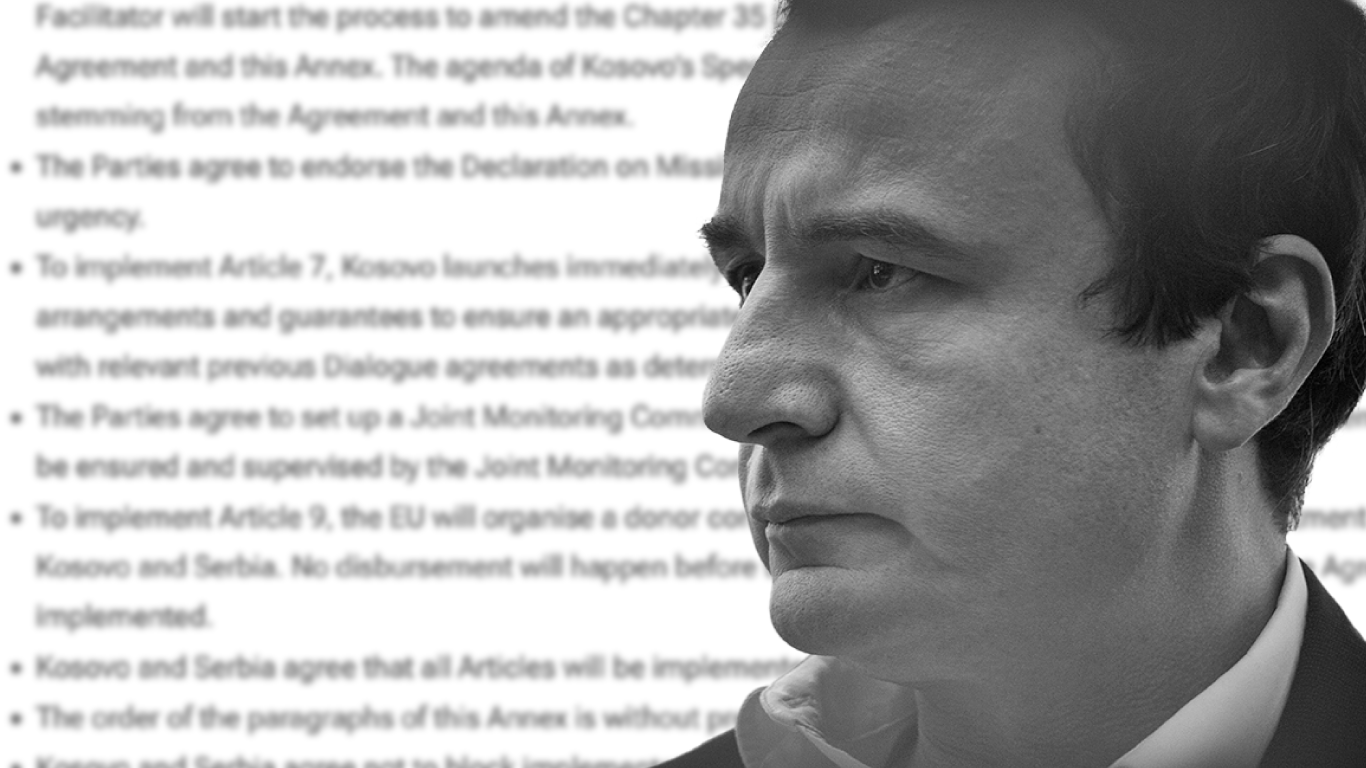
What happened in Ohrid?
Kosovo and Serbia reached an agreement, or did they?
Prime Minister Albin Kurti's six conditions for the Association

Gentiana Paçarizi
Gentiana Paçarizi is managing editor at K2.0. She has completed a master’s degree in Journalism and Public Relations at the University of Prishtina ‘Hasan Prishtina’.
This story was originally written in Albanian.